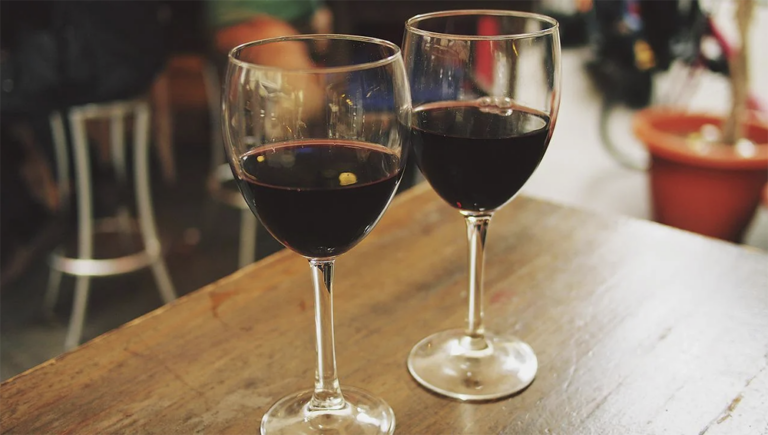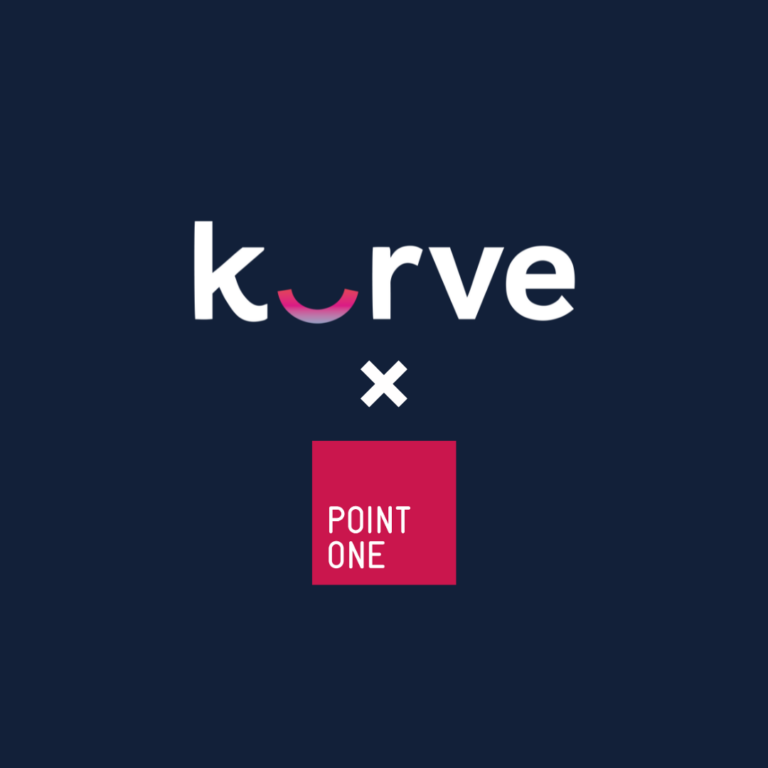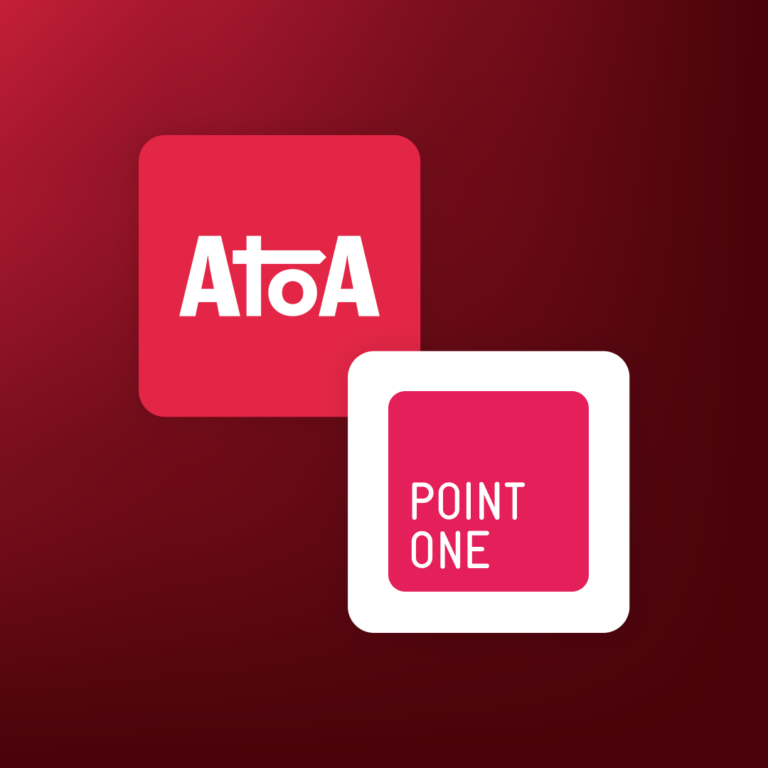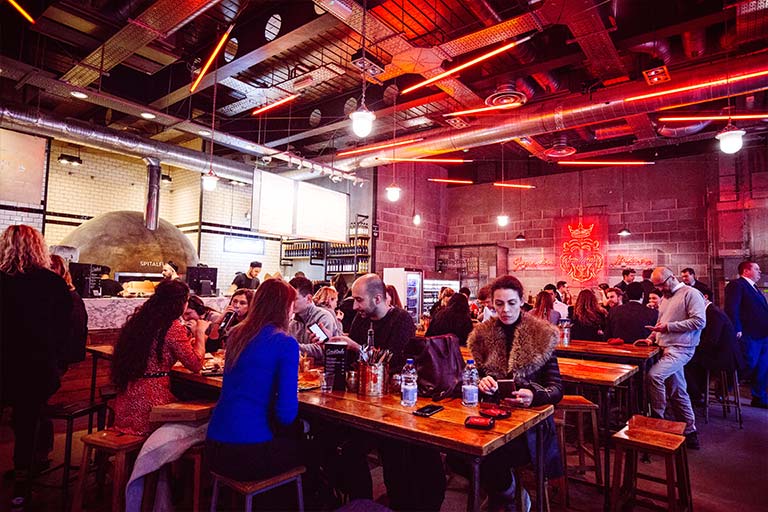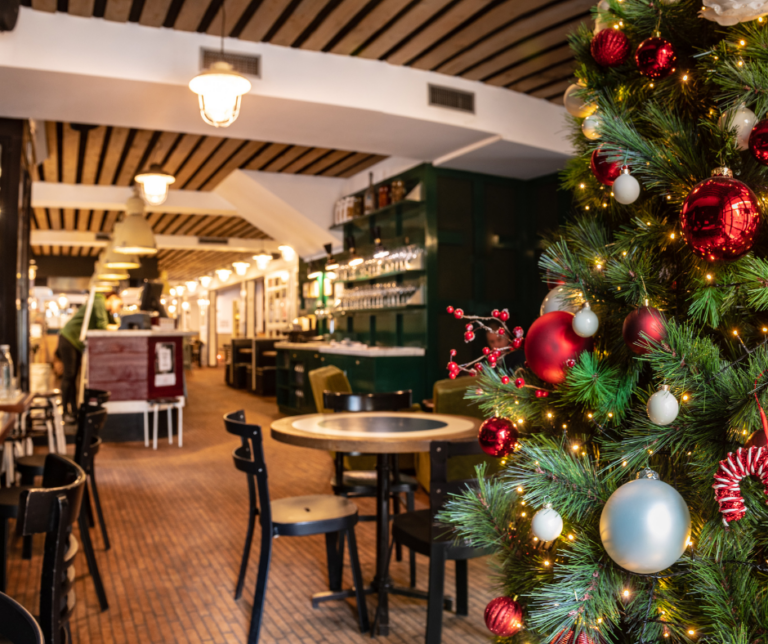
In January 2021, The Coffee Traveller, a coffee shop that I help manage, attained its alcohol licence. Although local council websites do have information on how to apply for alcohol licences, and what their licensing requirements are, it is hard to find an honest breakdown of what the process of obtaining a licence actually involves. I will therefore explain exactly what we had to do to get The Coffee Traveller its alcohol licence so you can decide whether this process is worthwhile for your hospitality business.
Type of licences required
Before I dive into exactly what we went through to get our alcohol licence, it’s worth describing the two licences you require to legally sell alcohol as the processes behind obtaining each of these licences were separate from each other.
The two licences that you need to sell alcohol are:
Personal Licence
Your business needs to be able to name an individual who holds a Personal Licence to sell alcohol. This individual does not necessarily need to run or be employed by the company being licenced, but they do need to consent to being held legally responsible should the licenced company fail to meet the objectives of their licence. The named Personal Licence holder for a business is called the “Designated Premises Supervisor (DPS)”. In our case the person we wanted to assign to be our DPS was one of the owners of the coffee shop.
Premises Licence
A Premises Licence gives permission from the local council for alcohol to be sold and consumed on your premises. The granting of a Premises Licence is based on your ability to demonstrate that you and your team can sell alcohol responsibly and that the sale of alcohol on your premises will not detract from:
- The prevention of crime and disorder
- Public safety
- The prevention of public nuisance
- The protection of children from harm
I’ll cash out exactly how we demonstrated our appreciation for these factors later on in the article.
Since you need written consent from a proposed DPS to apply for a premises licence, and that proposed DPS requires a personal licence to be eligible for this role, you should have obtained a personal licence before you begin to apply for a premises licence.
Obtaining a Personal Licence
To obtain a Personal Licence you need to have the following:
- A certificate of completion of the Award for Personal Licence Holders (APLH)
- A basic DBS
- Two endorsed headshots of yourself (Our DPS had his endorsed by his accountant)
- A copy of your personal identification (A scan of your passport will work here)
- Proof of entitlement to work in the UK if you are not a British citizen
Completing the Award for Personal Licence Holders (APLH)
Part of the application for a Personal Licence is the submission of your certificate for the completion of the Award for Personal Licence Holders (APLH).
The APLH is designed to test your understanding of the laws around the responsible selling of alcohol and what your personal responsibilities are as a Designated Premises Supervisor.
The APLH exam is administered by accredited private companies. Most of these companies also provide training for the exam, and the one that our DPS completed took the form of an hour-long video presentation. I’d suggest that you make a bundle purchase of the training and the online exam, as this allows you to get certified within a day. This cost £125, but I have seen training and exam bundles being sold online for as cheaply as £89.
Although much of the exam boiled down to common sense and common knowledge (an example of one of the multiple-choice questions was: “What is the legal drinking age in the UK?”) our Personal Licence holder is not sure if he would have passed the exam without the training. Although you can retake the exam if you fail, you will need to pay for it again if this happens. You can find a specimen of a mock exam here.
The exam provider that we used sent us a digital version of our APLH certificate the same day that the exam was completed. I’ve seen cheaper providers say that they take up to five working days to send you the certificate of completion once the exam is passed. The speed of receiving your certificate seems to be one of the main differentiators between providers, so if this is of little concern to you may not lose much by going with a cheaper provider.
Half-day in-person training where you complete your exam at the end of the session is also available.
Getting your basic DBS
If you have never needed a basic DBS check before just bear in mind that these take up to a month to process and cost £23. If you want to get your business’s alcohol licences as fast as possible then you should get your DBS in advance. Our Personal Licence holder already had a valid DBS.
Submitting the Personal Licence form
You can download a copy of the personal licence form here. This needs to be sent to the offices of the local council governing your home address (not your business address). Along with the filled out form you need to send:
- £37 either in cash or a cheque made payable to the respective council
- A copy of your identification
- A proof of your home address
- Your APLH certificate (this cannot be a copy)
- Your DBS (again, this cannot be a copy)
- A disclosure of convictions and civil immigrations form (you can download this here)
We received our Personal Licence card as well as the paper counterpart five days after we sent our application.
All-in-all the process of getting the Personal Licence was seamless, however we were helped by the fact that our applicant was both a British citizen and already had a DBS.
The only difficulty I can see someone encountering with this process is if they have any criminal convictions to their name. You can find a list of offences that have been deemed “relevant” to a Personal Licence application here.
Obtaining a Premises Licence
The Premises Licence application was far more challenging than the Personal Licence and I think we would have struggled to get our licence approved if we did not have professional help with certain parts of our application (I’ll explain where we got help with this later on).
We applied for the Premises Licence on 24th November 2020 and the licence was granted on the 9th February 2021.
The application for the Premises Licence involved submitting the following to the council that governs the area where your business premises is located:
- The basic Premises Licence application which can be downloaded here (second link on this page).
- An “Operating Schedule” that explains how you are going to ensure that alcohol is being sold and consumed on your premises in a responsible manner.
- A risk assessment of your premises.
- A floorplan of your premises, at a 1:100 scale, showing where your CCTV cameras and fire safety equipment is located, as well as where you plan to store and sell alcohol. The plan should also highlight the perimeter of your premises where you intend alcohol to be consumed.
- A fee dependent on your business rate. We paid £190 by card, you can find a breakdown of the bands and fees here. We also have to pay an annual fee of £180 to renew our premises licence.
In addition to this we also had to notify our local community of our application to get a premises licence. This was done in two ways:
- We put a sign on our front door saying that we had applied for a Premises Licence. This was on an A4 piece of paper and had to be displayed for 28 days. We had to send a photo of this as part of our application.
- We put an advertisement in the local paper stating who we were, our location, and that we were applying for a Premises Licence. This had to be in the paper for 10 consecutive days. We had to pay for this ourselves at a cost of £200.
I will now expand on each of these Premises Licence application requirements and explain what we had to do to fulfil them.
The Operating Schedule
The Operating Schedule was an eight page document that explained how we planned to meet all of the four licensing objectives. We needed a licensing consultant to help us write this up as incorrect wording of the Operating Schedule would have resulted in the licence application failing.
In order to create an Operating Schedule that was acceptable for the granting of a Premises Licence we had to make the following changes to the way that the coffee shop is run:
- We had to install two extra CCTV cameras to ensure full coverage of our entire premises. This cost us an additional £400.
- All staff needed to have additional training on the Licensing Act 2003, on how to enforce Challenge 25, and how to identify and refuse the sale of alcohol to customers who are visibly drunk.
- All staff who we permit to sell alcohol would need additional training before they can do so.
We also had to agree to only sell alcohol, and have customers consume alcohol on our premises, between 10am and 7pm. Our opening hours are 8am – 7.30pm.
You can find a copy of our Operating Schedule in Section 4 of this document.
The DPS would be held accountable to ensure that the Operating Schedule was adhered to, with punishments of an unlimited fine and up to six months in jail if they failed to do so.
Risk assessment of the premises
We hired a licensing consultant to undertake the risk assessment of the premises at a cost of £100 plus travel expenses.
The changes that we had to make as a result of the risk assessment were getting an extra fire extinguisher for our garden and putting up signage at the front of our premises and in our garden reminding customers to be mindful of the neighbours. Most of the necessary changes flagged up by the risk assessment were covered by the Operating Schedule.
Drawing up a floorplan of the premises
This floorplan did not have to be professionally drawn up, but it did need to clearly show where our CCTV cameras were installed, where we were to store and sell alcohol and where our fire safety equipment was kept.
Although the official requirement is that the floorplan is drawn at 1:100 scale, this did not seem to be checked thoroughly.
You can find an image of the floorplan below:
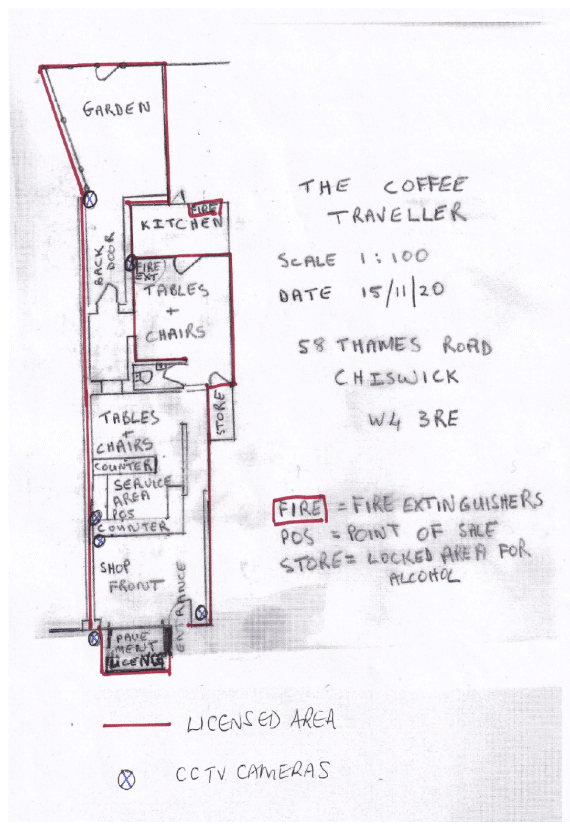
Notification of the local community and dealing with their objections
The rules surrounding the notice of the local community about your intention to apply for a Premises Licence states that if the council receives more than three objections to this the application then there has to be a formal hearing with a licensing panel.
You should plan for this to happen. We received 24 objections to our premises application.
The hearing was conducted virtually, took about an hour and a half and involved us answering questions from both the licensing panel (made up of local councillors) and several of the people who made the objections.
Here are some factors that I felt particularly helped us get the Premises Licence approved at the hearing:
- We had evidence that we had support from the local community for us to get licensed. We had a petition with over 500 signatures supporting our application. With hindsight we should have gotten the ball rolling with this petition earlier to get more signatures.
- We had no previous formal complaints lodged against us of causing a public nuisance.
- Our DPS owned the business and was heavily involved in the running of it. Having a DPS that was further removed from the running of the business would have made our case significantly weaker.
- We bought a couple of local residents who were willing to vouch for our responsibility as business owners to the hearing.
- We bought the licensing consultant who helped us answer the licensing panel’s questions. This was, in my opinion, the biggest advantage that we had over the objectors as our licensing consultant had dealt with hundreds of these hearings before, whereas the objectors had no known prior experience of this type of dispute.
The outcome of the hearing was that we were granted a licence on condition that we were ineligible for Temporary Events Licences (these are licences for one off events that involve the consumption of alcohol running past 7pm).
The timeline and costs of getting an alcohol licence
The process of getting our Personal Licence took 13 days and cost £187. The £187 can be broken down into:
- £150 for the APLH exam entry and learning materials,
- £37 for the Personal Licence application.
If your proposed Personal Licence holder does not have a DBS then you need to pay an additional £23 for this.
Although our local council (Hounslow) said that it would take up to five working days for our Personal Licence application to be processed, this actually took nine working days (12 days in total).
From start to finish, the Premises Licence application took 55 days and cost us £970. These costs can be broken down into the following:
- £190 (plus £180 annual fee) for the Premises Licence itself
- £100 for a risk assessment of our premises
- £400 to upgrade our CCTV system
- £200 for a newspaper advert declaring our intention to apply for a Premises licence
- £30 for additional fire safety equipment
- £50 for representation at the licencing panel hearing
Again, Hounslow council claimed that Premises Applications should take no more than 28 days. Ours took about double this due to the fact that it had to go to a licensing panel hearing.
In short, plan for the licensing process to take twice as long as the council suggests that it will take. There will almost certainly be at least one unexpected delay.
Advice to anyone considering getting alcohol licencing for their hospitality business
The main piece of advice that I would give to anyone who wants to get an alcohol licence for their business is to get the help of a licensing consultant.
Local councils are very finickity about what they want to see in a licensing application, meaning that details in your application matter and small mistakes can be the difference in getting your application accepted and denied. These mistakes are easily made if you have never done a licensing application before, even if you have the best intentions to follow the licensing guidelines.
Ideally you want to get advice from someone who has experience getting licence approval from the council where your business is based as they will have a deeper understanding of what the concerns are of the local licensing panel and where the risks of missing the licensing objectives lie.
You should also expect the licensing process to take longer and be more expensive than council websites indicate. Although in theory the process can take as little as six weeks and at a cost of around £300, the process took us three months and cost us the best part of £1,000. Had we anticipated these additional costs and timeframes, the process would have been a lot less stressful.
It’s finally worth saying that despite all this, getting our alcohol licence was 100% worth it. We particularly like how it allows us to diversify our offering which is becoming more important than ever given that people are expected to drink less coffee out compared to pre-pandemic times. As we were still in lockdown during the first quarter of 2021, we do not have reliable data on how the licensing has affected our turnover, however, sales of our wine and beer have been healthy since we have been granted our licence.
